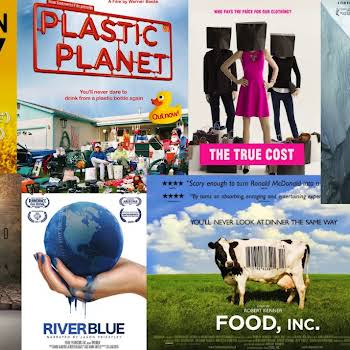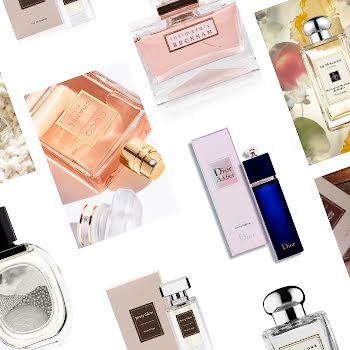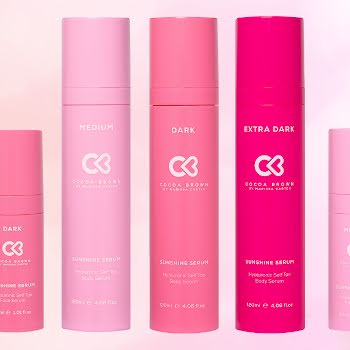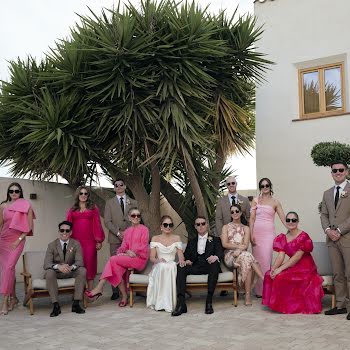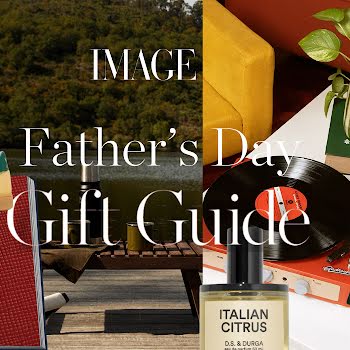Are we putting the burden of sustainability entirely on women’s shoulders?
By Holly O'Neill
26th Jun 2022
26th Jun 2022
What are the men at when it comes to being more sustainably and environmentally conscious?
In recent years, the rules for Black Friday shopping — and shopping in general — are everywhere. Stay away from the enormous business behemoths and the homogenous fast-fashion websites churning out clothes made by and for contestants on Love Island. If you must shop, you were warned, you better make it local, sustainable or second-hand.
Then it doesn’t take long for the uproar to begin on Black Friday when those fast-fashion sites start to sell-off their clothes at ridiculously low bargains, with Pretty Little Thing selling 25p heels and 8p dresses and Boohoo selling skirts for as little as £1.60.
Bella Hadid made the mistake of sharing in the comments under an Instagram post that she was wearing a dress that cost $16.99. Cut once more to social media fury over unsustainable consumption, slave labour and hidden environmental costs.
Now, forgetting for the moment about the very serious issue of sustainability and the impact of fast fashion, of which you can read about in droves on IMAGE.ie, let’s take a look at the imbalance in our conversations around the things we can do for the environment.
Aside from the billionaire tech leaders who are funding environmental programmes to try and ensure we don’t eat them first when the Earth collapses, it would appear that women seem to be doing the majority of the heavy lifting when it comes to the ways we can be more environmentally conscious.
Are you stressed about being perfectly ethical and sustainable? Do you think men are feeling the same way?
I can list you off one hundred ways right now that women can help the planet. My inbox, social media and news sites are filled with sustainable products and tips for women. Don’t use make-up wipes. Get a bamboo toothbrush. You’re still using toothpaste in a tube? Try it in a jar, you pig. Don’t you know that every single tube of toothpaste ends up in landfill? Oh, you’re going to let the Earth take the hit because you get periods every month? You could end up using 5,000 to 15,000 pads and tampons in your lifetime, which take centuries to decompose. Have you not considered a menstrual cup or washing your own blood out of period knickers?
Do men carry this information around in their brains all day? No. No they don’t.
Social media is filled with women challenging themselves to be vegan, buy second-hand, eliminate single-use plastic and cut down on waste. “Look!” they say. “Here is a visual representation of the waste I made in a week! It fits into this miniature sandwich bag! How much space did you take up on the Earth this week, you savage?” It’s enforced on us, and we enforce it on each other.
Women have made entire careers as sustainable eco-friendly influencers, encouraging you to get your KeepCup out in the morning and wash your hair with a bar of soap. Our most high profile environmental activists are women. Greta’s had to shout at world leaders in the UN and miss two years of Fridays at school so she’ll get to see a polar bear in her lifetime.
Are you reading quite as much information about why men should, I don’t know, buy electric cars? Buy vintage watches instead of new ones? As a beauty editor I can assure you that while women’s hygiene and beauty products are bending over backwards to create sustainable packaging, processes and formulations that are environmentally conscious, men’s grooming is still focused on trying to get men to just wash their face. According to a quick poll of the IMAGE staffers, the men in our lives are still figuring out what does and doesn’t go in the recycling bin.
As women are still depressingly likely to be in charge of managing the household, marketing has continually drilled it into us that taking care of the environment is a new layer of women’s work. And, you guessed it, men think that too. You know the way that men’s body wash has to be called ‘Ice War’ and ‘Sports Pain’ to encourage men to wash themselves? Well, the same thing has happened to being environmentally conscious. Going green is for girls, apparently, and manliness is hurting the planet.
Try to read about these next few studies without running into a wall or punching yourself in the face. In a 2019 study published in the journal Sex Roles, researchers at Penn State found that men were less likely to carry a reusable shopping bag or recycle for fear of being perceived as gay or effeminate. One 2016 study at the University of Notre Dame published in the Journal of Consumer Research found that men are less likely to engage in green behaviours that are seen as feminine and more likely to purchase environmental products if their masculinity gets a branding boost. As part of the study, researchers compared the difference between men and women’s willingness to donate to environmental charities. One charity was named “Friends of Nature,” and featured a green logo with a tree. The other charity was called “Wilderness Rangers” with a logo of a wolf howling to the moon. Guess which one the men favoured?
Maybe, before we lay at the blame entirely at the fast-fashion-enveloped feet of Bella Hadid and the teenagers looking to cop a 10 cent version of a dress Kim Kardashian made them want to buy, we should reconsider the patronising of women when toxic masculinity is also at blame. Why has it become women’s job to save the planet?
Photography by @bellahadid.













